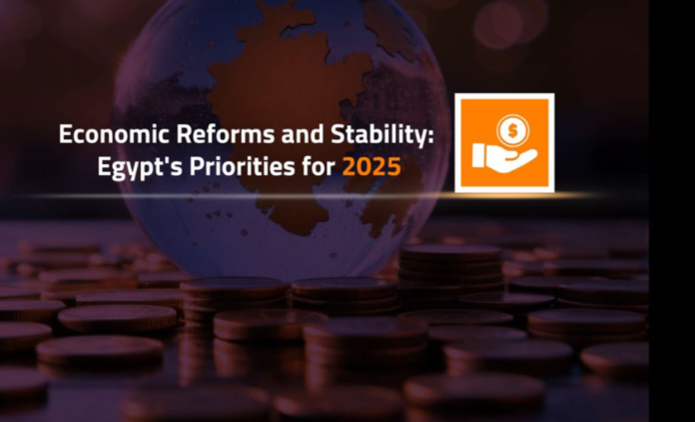Wheat Procurement Price: An Attempt to Increase Local Supply
Updated 1/31/2023 12:13:00 PM
In the past year, many countries have been affected by the Russian invasion of Ukraine, especially when it comes to the supply of wheat. However, Egypt has been trying several means to face the wheat supply shortage and to secure local market demands. On January 18th, Egypt approved an EGP 250 as an additional incentive on the wheat procurement price for the new harvest season for the price of ardeb to be EGP 1,250. The increase in procurement prices is expected to impact the wheat supply and help face any potential shortage.
The Wheat Industry in a Year
After the Russian invasion of Ukraine, the world suffered a wheat shortage as the Russian and Ukrainian wheat supplies accounted for around a quarter of the world’s exports of wheat, as mentioned in the US Department of Agriculture (USDA).
In the past five years, Egypt's wheat imports reached 62.6 million metric tons, of which 59.7% were from Russia, while 22.3% came from Ukraine, according to Information and Decision Support Center (IDSC)'s report 'Food security in Egypt in light of Russian-Ukrainian war' published in July 2022. Therefore, the Egyptian government has made a great effort to secure local market demands. In the first three months after the invasion, Egypt diversified its wheat suppliers via international tenders to secure a stable wheat supply. Accordingly, Egypt received its first wheat shipment from India on June 5th, 2022.
In the past years, Egypt has boosted its storage capacity to store wheat for three to six months. In 2022, the country has been working on boosting the wheat purchased locally. In a press conference at the end of August 2022, Minister of Supply and Internal Trade, Ali Moselhi, confirmed that the quantities of wheat received from the beginning of the harvest season until August 31st are 4.2 million tons of wheat from farmers.
In August 2022, Egypt announced increasing the guide price for purchasing ardeb by 13.6% from EGP 880 to EGP 1,000 per ardeb starting the new harvest season. Moreover, the country raised the price by EGP 250 in January to be applied in the new harvest season, which starts in April 2023. This comes in an attempt to encourage farmers to cultivate and supply wheat to the country.
What is Expected from the Local Wheat Suppliers?
The raise of the local wheat procurement price was not the only step taken to help farmers. The state continues to subside the fertilizers needed for growing wheat to decrease the cost for farmers. The impacts of those steps are expected to be decreasing Egypt's reliance on imports and securing an adequate amount of reserves. Moreover, raising the price of the ardeb demonstrates the state's keenness to help farmers and encourage them to grow and supply the state with wheat. Most importantly, it gave farmers motive to keep planting wheat as the selling prices, now, is equivalent to the increase of all other commodities in Egypt.
Hassan, a 40-year-old farmer, tells Arab Finance that “the new incentive increase in the price of purchasing wheat ardeb is barely enough to cover the cost needed for growing wheat.” He adds that the war caused not only a global crisis in wheat supply, but also increased the prices of fertilizers, services, and insecticides. So, this raise might encourage wheat farmers to continue growing it and not shift to other seeds.
However, these are not the only impacts of the decision. The increase will cause the state to more than double the amount of money allocated to support wheat in the general budget; from EGP 38 billion to EGP 95 billion, according to Prime Minister Mostafa Madbouly.
Meanwhile, the state plans to purchase 4 million tons of local wheat from farmers during the upcoming harvest season that begins in April 2023, according to Minister of Supply and Internal Trade Ali Moselhi. The targeted amount is less than the amount secured last year from the local harvesting which was 4.2 million tons. Accordingly, the raise in the ardeb price is not going to instantly increase the amount of local wheat supply, but rather discourage farmers from stopping planting wheat.
Taking into consideration that Egyptians’ consumption rate of bread is double the global average, the shortage of bread sources can be critical. Hamdy, an owner of a flour mill, tells Arab Finance: “last year, we did not actually have a drastic shortage of wheat that could stop the business, it was available, however, with double the price, which affected his production to decrease to the third.” He adds that the current increase in wheat purchasing ardeb can help in not affecting the local wheat supply, however, due to inflation and the continuing Russian war, he expects that the production of his mill is going to be less than last year and the prices of the flour are going to increase by 50%.
Therefore, the increase in the procurement price of purchasing wheat ardeb will help the state in providing the same amount of wheat supply as last year. The state will continue depending on imported wheat to meet the local demand. It is hard to predict if the consequences of the ongoing war and global prices on wheat supply will be beaten soon.
By Sarah Samir
Related News







